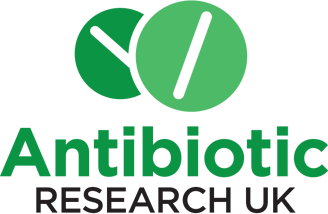Bacterial antibiotic resistance is on the rise globally, threatening modern medicine as we know it
Resistance to antibiotics arises when natural bacteria in our body are no longer affected by the antibiotics we use. The resulting antibiotic-resistant infection can be fatal. Nearly every medical procedure, from cancer treatment and organ transplantation to hip or joint replacement, is dependent on effective antibiotics (see how procedures would be affected).
This impending disaster is why our charity needs to be successful. If we don’t act now, the antibiotic era will pass, and our children and grandchildren will fail to have the benefits of antibiotics that current generations have enjoyed.
The good news is there are lots of things that every one of us can do to help prevent antibiotic resistance and in turn reducing our risk of developing resistant bacterial infections.
Get our newsletter

Receive up to date information about the work and research that we are funding to combat antibiotic resistance.
How can I prevent and treat bacterial infections?
Common bacterial infections
At many points in your life, you will suffer with common bacterial infections. It’s important you know how to recognise them and take steps to protect yourself from getting ill. There are a huge number of disease-causing bacteria that affect people, but some are much more common than others. Below, we’ve put together some detail about the most common bacterial infections you might experience.
This is not an exhaustive list and the described treatments are for general information and should not be considered medical advice. If you believe you have an illness or injury, please consult the NHS website, call 111 or visit your GP or hospital.

Here are some things we can all do to prevent the spread of antibiotic resistance

Wash your hands properly using soap regularly. Antibacterial soap is probably no better than general purpose soaps, so don’t let the lack of one put you off!

Cover your mouth with a tissue when sneezing or coughing and dispose of the tissue immediately. If you don’t have time, cough into the crook of your elbow. Don’t cough into your hand or keep a hanky in your pocket!

If your symptoms are mild (e.g. sore throat), give your body time to clear the infection naturally before visiting your GP. For a chest infection, this could be up to three weeks.

Don’t ask your doctor for antibiotics if you have a cold or the flu, or any other viral or fungal infections. Trust them if they say antibiotics will not work for your illness.

Take antibiotics exactly as prescribed by your healthcare provider.

Keep taking your prescribed antibiotics for as long as they are prescribed for, even if your symptoms clear up sooner.

Never borrow antibiotics or give them away to someone else, even if their symptoms are the same as yours.

Dispose of any old antibiotics properly (e.g. at a pharmacy).
Stay informed
You can also sign up here to receive up to date information about the work and research that we are funding to combat antibiotic resistance.
We’re here to support you
Living with a resistant infection can be devastating. Not only is it often painful and debilitating, it’s also an area of medicine which is still underfunded and not fully understood. Often patients are left to deal with it in isolation.
Antibiotic Research UK’s Patient Support Service is here to support the growing number of people who are living with this chronic condition. If YOU need a listening ear, trusted information or simply some moral support, our Patient Support Team are at the end of the phone or you can email them. Please don’t hesitate to contact them.
We need your help!
We rely on voluntary donations to fund our support service and crucial research. If you can help us today any donation big or small will make a difference
Donate today and save lives
Stay informed
You can also sign up here to receive up to date information about the work and research that we are funding to combat antibiotic resistance.
